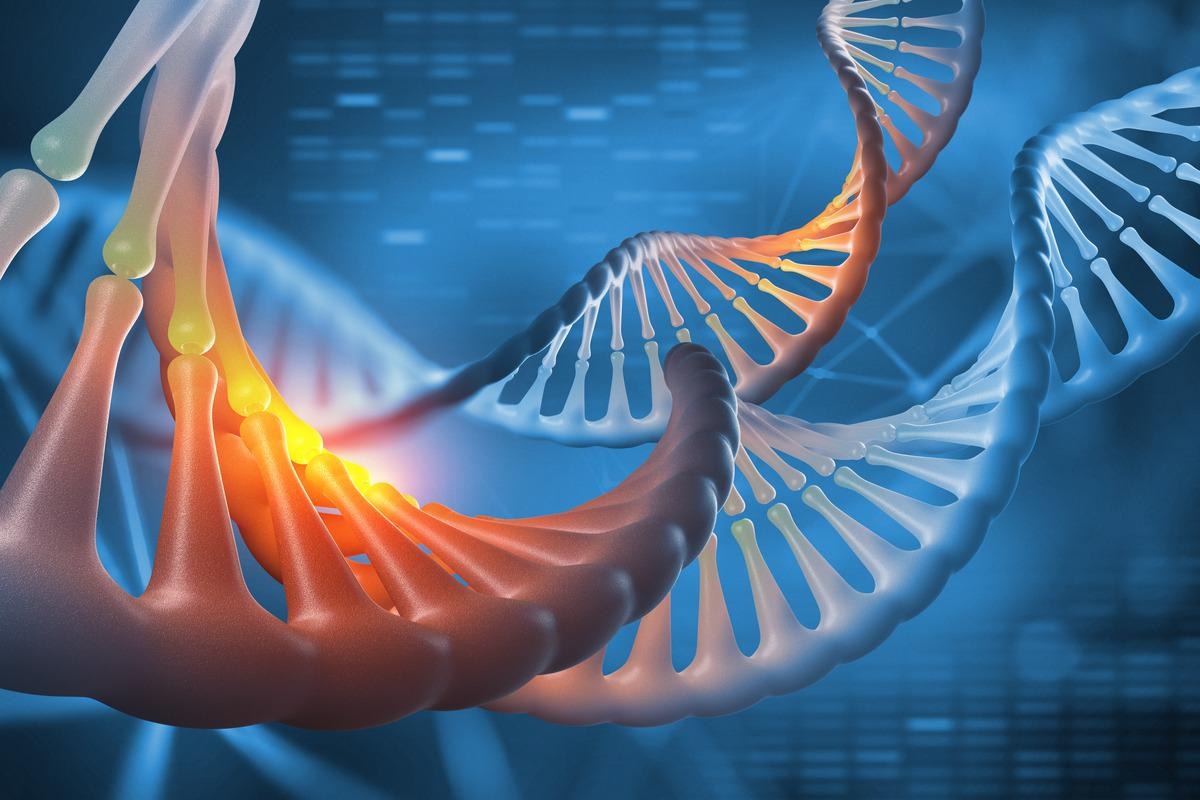Reviewed by Danielle Ellis, B.Sc.Apr 22 2022
Professor Serena Nik-Zainal of Cambridge University Hospitals (CUH) and the University of Cambridge headed a group of scientists that analyzed the whole genetic make-up or whole-genome sequencing (WGS) of over 12,000 NHS cancer patients in the largest research of its type.
Largest dataset of cancer whole genome sequences | Serena Nik-Zainal
Merkel Cell Carcinoma. Video Credit: Isaac Brownell, National Institute of Arthritis and Musculoskeletal and Skin Diseases/National Institutes of Health.
The researchers were able to detect patterns in cancer DNA known as “mutational signatures,” that provide clues about whether a patient has been exposed to environmental causes of cancer like smoking or UV light, or has internal, cellular malfunctions, thanks to the vast amount of data provided by whole-genome sequencing.

Image Credit: Yurchanka Siarhei/Shutterstock.com
The researchers also discovered 58 new mutational signatures, implying that there are other cancer causes that researchers are not aware of. The findings were published in the journal Science.
The 100,000 Genomes Project, an England-wide clinical research endeavor to sequence 100,000 entire genomes from roughly 85,000 patients with uncommon diseases or cancer, contributed to the genomic data.
WGS gives us a total picture of all the mutations that have contributed to each person’s cancer. With thousands of mutations per cancer, we have unprecedented power to look for commonalities and differences across NHS patients, and in doing so we uncovered 58 new mutational signatures and broadened our knowledge of cancer.”
Dr Andrea Degasperi, Study First Author, Department of Oncology, University of Cambridge
“The reason it is important to identify mutational signatures is because they are like fingerprints at a crime scene—they help to pinpoint cancer culprits. Some mutational signatures have clinical or treatment implications—they can highlight abnormalities that may be targeted with specific drugs or may indicate a potential ‘Achilles heel’ in individual cancers.”
“We were able to perform a forensic analysis of over 12,000 NHS cancer genomes thanks to the generous contribution of samples from patients and clinicians throughout England.”
“We have also created FitMS, a computer-based tool to help scientists and clinicians identify old and new mutational signatures in cancer patients, to potentially inform cancer management more effectively,” added Serena Nik-Zainal, from the Department of Medical Genetics and also an honorary consultant in clinical genetics at Cambridge University Hospitals.
Michelle Mitchell, chief executive of Cancer Research UK, which supported the research, stated, “This study shows how powerful whole genome sequencing tests can be in giving clues into how the cancer may have developed, how it will behave and what treatment options would work best. It is fantastic that insight gained through the NHS 100,000 Genomes Project can potentially be used within the NHS to improve the treatment and care for people with cancer.”
Matt Brown, Professor, and chief scientific officer of Genomics England explained, “Mutational signatures are an example of using the full potential of WGS. We hope to use the mutational clues seen in this study and apply them back into our patient population, with the ultimate aim of improving diagnosis and management of cancer patients.”
Professor Dame Sue Hill, England’s chief scientific officer and the NHS’s Senior Responsible Officer for Genomics, concluded, “The NHS contribution to the 100,000 Genomes Project was vital to this research and highlights how data can transform the care we deliver to patients, which is a cornerstone of the NHS Genomic Medicine Service.”
Source:
Journal reference:
Degasperi, A., et al. (2022) Substitution mutational signatures in whole-genome–sequenced cancers in the UK population. Science. doi.org/10.1126/science.abl9283.